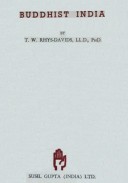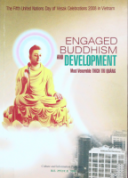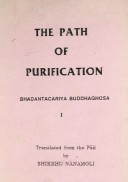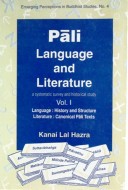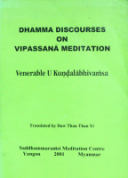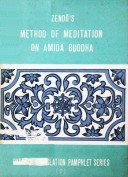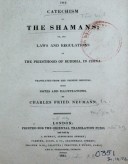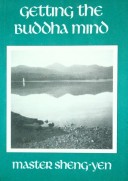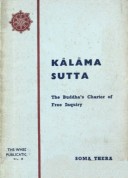Tìm Sách
Sách tiếng Anh-English >> Buddhist India
Thông tin tra cứu
- Tên sách : Buddhist India
- Tác giả : T. W. Rhys-Davids
- Dịch giả :
- Ngôn ngữ : Anh
- Số trang : 226
- Nhà xuất bản : Susil Gupta (India) Ltd.
- Năm xuất bản : 1950
- Phân loại : Sách tiếng Anh-English
- MCB : 1210000002818
- OPAC :
- Tóm tắt :
PREFACE
In the following work a first attempt has been made to describe ancient India, during the period of Buddhist ascendancy, from the point of view, not so much of the brahmin, as of the raj put. The two points of view naturally differ very much. Priest and noble in India have always worked very well together so long as the question at issue did not touch their own rival claims as against one another. When it did—and it did so especially during the period referred to—the harmony, as will be evident from the following pages, was not so great.
Even to make this attempt at all may be regarded by some as a kind of lese majeste. The brahmin view, in possession of the field when Europeans entered India, has been regarded so long with reverence among us that it seems almost an impertinence now, to put forward the other. “Why not leave well alone? Why resuscitate from the well-deserved oblivion in which, for so many centuries, they have happily lain, the pestilent views of these tiresome people? The puzzles of Indian history have been solved by respectable men in Manu and the Great Bha’rata, which have the advantage of being equally true for five centuries before Christ and five centuries after. Shade of Kumarila! what are we coming to when the writings of these fellows— renegade brahmins among them too—are actually taken seriously, and mentioned without a sneer? If by chance they say anything well, that is only because it was better said, before they said it, by the orthodox brahmins, who form, and have always formed, the key-stone of the arch of social life in India. They are the only proper authorities. Why trouble about these miserable heretics?”
Well, I would plead, in extenuation, that I am not the first guilty one. People who found coins and inscriptions have not been deterred from considering them seriously because they fitted very badly with the brahmin-theories of caste and history. The matter has gone too far, those theories have been already too much shaken, for any one to hesitate before using every available evidence. The evidence here collected, a good deal of it for the first time, is necessarily imperfect; but it seems often to be so suggestive, to throw so much light on points hitherto dark, or even unsuspected, that the trouble of collecting it is, sq far at least, fairly justified. Any words, however, are, I am afraid, of little avail against such sentiments. Wherever they exist the inevitable tendency is to dispute the evidence, and to turn a deaf ear to the conclusions. And there is, perhaps, after all, but one course open, and that is to declare war, always with the deepest respect for those who hold them, against such views. The views are wrong. They are not compatible with historical methods, and the next generation will see them, and the writings that are, unconsciously, perhaps, animated by them, forgotten.
Another point of a similar kind, which ought not in this connection to be left unnoticed, is the prevalent pessimistic idea with regard to historical research in India. There are not only wanting in India such books giving consecutive accounts of the history as we are accustomed to in Europe, but even the names and dates of the principal kings, and battles, and authors, have not been preserved in the literature—that is, of course, in the brahmin literature which is all that has hitherto been available to the student. That is unfortunately true, and some of the special causes which gave rise to this state of things are pointed out below. But the other side of the question should not be ignored. If we compare the materials available for the history, say, of England in the eighth or ninth century A.D. with the materials available for the history of India at the same period, the difference is not so very marked. The more proper comparison, moreover, would be made with Europe; for India is a continent of many diverse nations. And in the earlier periods, though we have inherited a connected history of one corner in the south-east of the continent, the records handed down for the rest of Europe are perhaps as slight and as imperfect as those handed down in India. What is of more importance, in Europe, for the earlier periods, all the inherited materials have been made available for the historical student by properly edited and annotated editions, and also by dictionaries, monographs, and helps of all sorts. In India much of the inherited material is still buried in MS., and even so much as is accessible in printed texts has been by no means thoroughly exploited. Scarcely anything, also, has yet been done for the excavation of the ancient historical sites. We might do well to recollect, when we read these complaints of the absence of materials, that the remedy lies, to a very large extent, in our own hands. We might so easily have more. We do not even utilise die materials we have.
To speak out quite plainly, it is not so much the historical data that are lacking, as the men. There are plenty of men able and willing to do the work. But it is accepted tradition in England that all higher education may safely be left to muddle along as it best can, without system, under the not always very wise restrictions of private beneficence. One consequence is that the funds have to be administered in accord with the wishes of benefactors in medieval times. The old studies, theology, classics, and mathematics, have a superabundance of endowment. The new studies have to struggle on under great poverty and difficulty. There is no chair of Assyriology, for instance, in England. And whereas in Paris and Berlin, in St. Petersburg and Vienna, there are great seminaries of Oriental learning, we see in London the amazing absurdity of unpaid professors obliged to devote to the earning otherwise, of their living, the time they ought to give to teaching or research. And throughout England the state of things is nearly as bad. In all England, for instance, there are two chairs of Sanskrit. In Germany the Governments provide more than twenty—just as if Germany’s interests in India were more than ten times as great as ours. Meanwhile our Government is supine and placid, confident that, somehow or other, we shall muddle through; and that this is no business of theirs.
This work has been long delayed, and has suffered much from the necessity laid upon me of trying to write it in scraps of time rescued, with difficulty, from the calls of a busy life. I can only hope that other scholars, more able and less hampered than myself, will be able to give to the- problems of entrancing interest I have ventured to raise a consideration more worthy of them, in every way, than I have been able to give.
T. W. Rhys-Davids.
October, 1902.
CONTENTS
CHAPTER
PREFACE
I. THE KINGS
II. THE CLANS AND NATIONS
III. THE VILLAGE
IV. SOCIAL GRADES
V. THE TOWN
VI. ECONOMIC CONDITIONS
VII. WRITING—THE BEGINNINGS
VIII. WRITING—ITS DEVELOPMENT
IX. LANGUAGE AND LITERATURE
1. GENERAL VIEW
X. LITERATURE
2. THE PALI BOOKS
XI. THE JATAKA BOOK
XII. RELIGION—ANIMISM
XIII. REUGION—THE BRAHMIN POSITION
XIV. CHANDRAGUPTA
XV. ASOKA
XVI. KANISHKA
APPENDICES
- THE MOST ANCIENT COINS OF INDIA
- NOTES
PLATES
INDEX
 Facebook
Facebook
 Google
Google
 Google+
Google+
